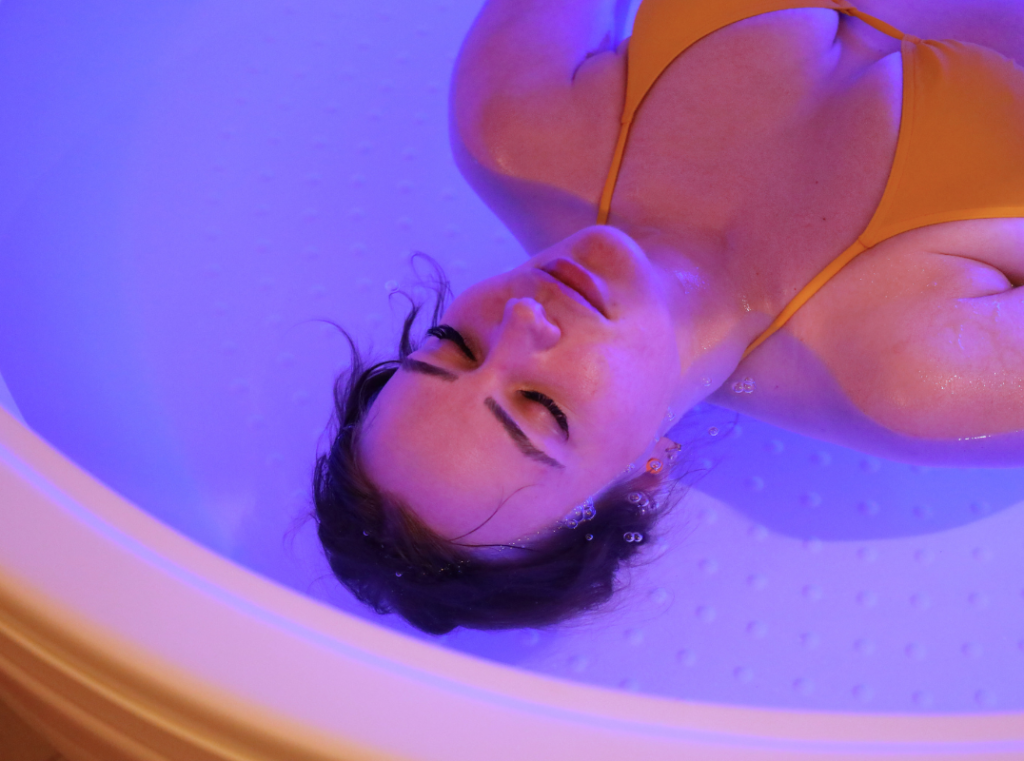‘Blue Mind’ and The Healing Powers of Water

There is no denying the feel-good factor of water. Whether the visuals of frothy ocean waves or wild swimming in lakes, water evokes a profound sense of joy inside many. Even hot showers on cold days or refreshing ones to cool us from the sweltering heat all provide a surge of adrenaline, a soothing balm for the soul, and a sensation of absolute calm and freedom.
In 2013, marine biologist Dr Wallace J Nichols, author of Blue Mind, took a deep dive into our emotional, physical and psychological connections to water: how it makes you happier and more connected, drawing on neuroscience and human behaviour to explore why it has such a positive effect on our well-being. In short, Blue Mind is the meditative state people fall into when they are near, in, under or on water.
We all know that water covers more than 70% of the Earth’s surface and makes up nearly 70% of our bodies. This deep biological connection with water has been reported to trigger an immediate response in our brains when we’re near it. The mere sight and sound of water can induce a flood of neurochemicals that promote wellness, increase blood flow to the brain and heart, and induce relaxation, allowing the body to rest deeply.
Blue mind theory is not a new concept, but over the years, it has rapidly added flavour to the wellness industry as an integral part of healing. In fact, a lot of research shows that water or the sound of it, such as waves crashing or the trickling of a gentle stream, reduces cortisol levels, the hormone associated with stress. As a result, we are calmer, more creative, and have a much more connected state of mind and body.
According to Dr Nichols, our moods should flit between ‘blue’ and ‘red’ mind: “When we are anxious, there’s uncertainty. We’re overstimulated, there’s a lot of technology and lots of screens, but it serves as our fight or flight and can be useful when harnessed for good,” he says. This explanation touches on the foundations of nervous system science and helps us understand how our stress responses work. Nervous system science is something we are passionate about at Soma Haus. If you would like to learn more, consider booking in for a consultation with us.
However, it can go too far and turn into a ‘grey’ mind, according to Dr Nichols, which means burnout, breakdown, disconnection and even mild depression. He says, “The goal is to move between red, which is our action mode, and blue, which is calm and restorative, and avoid the grey,” he adds. As we practise blue mind, we’re leaving the sources of red behind – the mental, visual and auditory stimuli that distract us. “Blue mind is as much about what it takes away from us as what it gives us,” he clarifies.
Cultivating Blue Mind through Flotation Therapy or Sensory Deprivation

At Soma Haus, clients float in our sensory deprivation tank (float pod) to engage with their ‘blue mind’. Sensory deprivation tanks, or isolation or float pods, are designed to reduce sensory input to the brain by creating an environment free from external stimuli. Moving from a world where we are bombarded with so much sensory stimulation to another in which we are completely deprived of it can help promote deep relaxation. The absence of sensory input allows the brain to shift from its usual beta waves (active, alert state) to alpha waves (relaxed, reflective state) and sometimes even theta waves (deep meditative state).
The float pods are filled with water saturated with Epsom salt (magnesium sulfate), allowing you to float effortlessly, similar to the Dead Sea. The water is maintained at skin temperature (around 34.5°C), making it difficult to distinguish between body and water, creating a feeling of weightlessness. The buoyancy provided by saltwater alleviates pressure on the joints and muscles, which can be particularly beneficial for individuals suffering from chronic pain, arthritis, or physical injuries. Additionally, direct exposure to magnesium on the skin can relieve pain, discomfort, or tension.
The therapeutic benefits of water, combined with the principles of sensory deprivation, make flotation therapy a powerful tool for enhancing physical, mental, and emotional well-being. Whether you seek relief from chronic pain, a way to unwind and de-stress, or boost creativity and mental clarity, a floatation therapy session may hold the key to tapping into the Blue Mind and unlocking these benefits.